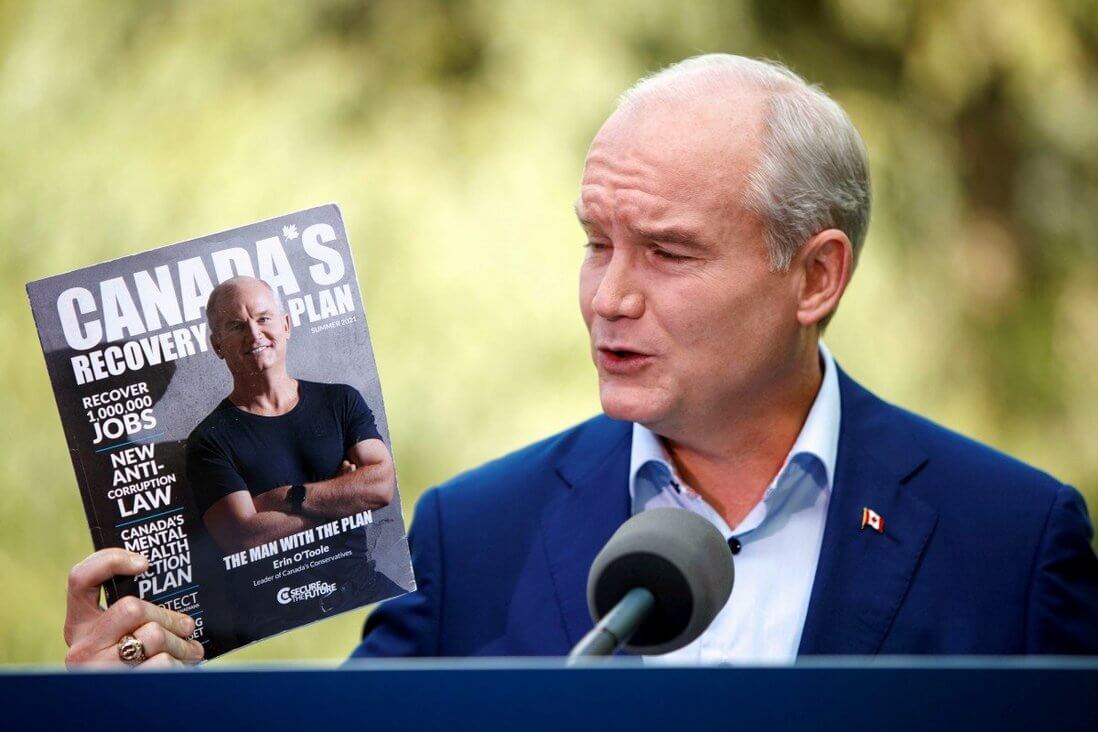China has condemned Canada’s Conservative Party for “toxic” anti-Chinese sentiments on its “hostile” election platform launched by party leader and election candidate Erin O’Toole last month ahead of the federal elections on September 20.
The Chinese state-owned media house Global Times reported that the Conservatives referenced China 31 times in their platform, in what Chinese observers qualified as an attempt to exacerbate the already abysmal Canada-China bilateral ties. The Chinese media house lashed back at the Conservative’s anti-China positioning and warned of counter-strikes if the sentiments materialise post-elections. Moreover, Chinese observers highlighted that voicing opinions against Beijing has been a “lip-service” tactic employed by Western politicians in their elections for increased sensationalisation.
Last month, the Canadian media outlet The Hill Times quoted the Chinese ambassador, Cong Peiwu, as saying that “some people put their personal political interests above the interests of the Canadian people as a whole and hype issues related to China.” Reacting to O’Toole’s comments on the election platform, Cong said, “We must stand up to the Communist government of China.” He then suggested that playing the China card indicates that politicians otherwise lack good policies to appeal to voters.
The Hill Times mentioned that the Conservative Party, led by O’Toole, outlines a government that would “shift trade priorities away from China, including recognising the Chinese persecution of Uyghurs as genocide, banning Huawei from Canada’s 5G infrastructure, and having greater political cooperation with Taiwan.”
The relations between China and Canada have worsened over time, seemingly as a by-product of the consistently tense US-China relations. The ties deteriorated after the arrest of Meng Wanzhou, Chinese telecom giant Huawei’s Chief Financial Officer (CFO), in Vancouver in December 2018 and the subsequent arrests of Canadians Michael Spavor and Michael Kovrig in Beijing that were perceived as arbitrary retaliatory measures.
Meng was arrested on a bank fraud warrant issued by the Donald Trump administration that accused her of breaking Iranian sanctions. Within ten days of her arrest, Beijing detained Spavor and Kovrig for “spying on national secrets” and providing intelligence to “outside entities.” Canada suspects these arrests were purely in retaliation to Meng’s arrest. However, China has denied the claims and in August sentenced Spavor to 11 years in prison while also upholding the death sentence of another Canadian national.
Furthermore, China Mobile International Canada (CMI Canada) has asked the Federal Court to suspend a government order directing the Chinese telecommunications company to divest its stake in its Canadian subsidiary on the grounds of national security threat or espionage. The order has been presented by CMI without any real evidence of espionage, exposing the “Canadian government’s attempt to kick the Chinese company out of its market,” Global Times reported on Sunday.
The Canadian snap elections, called by Prime Minister and Liberal party leader Justin Trudeau two years ahead of its initially scheduled date, has become a hub of political name-calling. What Trudeau hoped would secure him a sure-shot majority has developed into a neck-to-neck race between the Liberals and the Conservatives, with some polls predicting that the incumbent leader could lose. Since mid-August, Trudeau and O’Toole have criticised and attempted to belittle each other on various fronts.
Trudeau and O’Toole speak in tandem when it comes to China, with the former taking a more subtle route. In the Liberal platform presented last month, as opposed to O’Toole, Trudeau only mentioned China once. “The [Liberal] party would continue to partner with allies to respond to illegal and unacceptable behaviour by authoritarian states, including China, Russia, and Iran,” he said. Trudeau currently holds a more muted stance on China than last year when he directly accused the latter of “coercive diplomacy” on October 13, the 50th anniversary of Canada’s diplomatic relations with China.
“Anti-China sentiment in Canada is very widespread at the moment. The Conservatives know where the Canadian public is in terms of its opinion on China. They’d like to make this an election issue. But the Conservatives have the luxury of not being in government. The Liberals can’t go too hard because they have a moral responsibility, as the government of Canada, towards the two Michaels,” Michael Byers, a political science professor at the University of British Columbia, said.
Despite Canada’s increasingly strained relationship with China, Canadians believe that the two nations’ dynamic ultimately depends on the US-China ties. “We’re the mouse caught between the elephant and the dragon, and yes, the broader relationship between Washington and Beijing determines almost everything,” Byers said.

